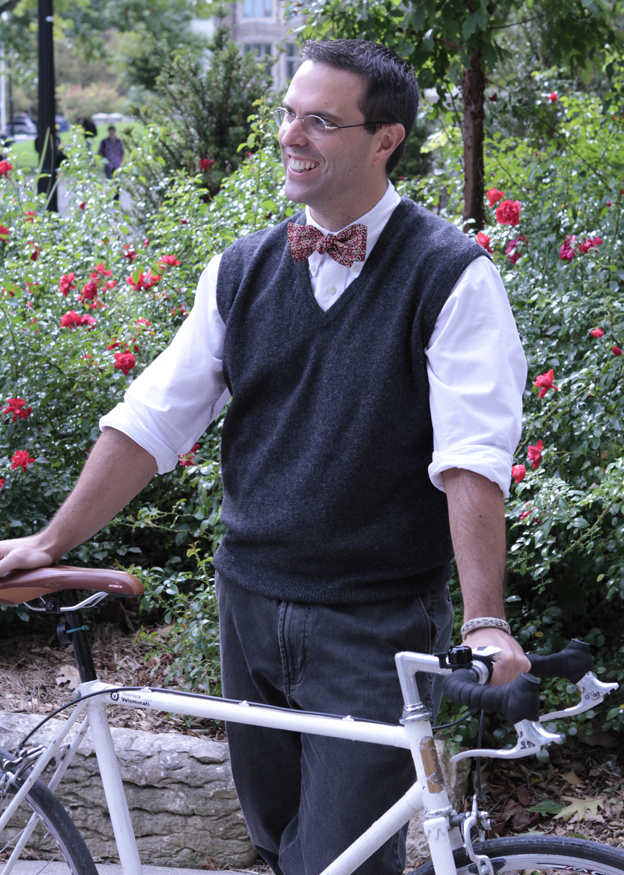Award-winning professor is always two-tired to travel

Michael Egan, associate professor of history, will host a public lecture Friday with special guest Eben Weiss, better known as Bike Snob NYC.
Michael Egan is rolling out big plans for his Petro-Canada McMaster Young Innovator Award.
The associate professor of history is eager to connect students and members of the broader community to their bicycles in new ways that will change how they get around and how they view the bicycle’s role in history and in the future.
The award goes to a leading scholar who has completed a PhD within the past eight years. It recognizes the recipient’s research achievements and provides $25,000 in funding to engage undergraduates in the winner’s ongoing research.
Egan, an avid cyclist who commutes to campus from his home in Dundas, is organizing a comprehensive education and research project called Vélo: Technology, Society and Culture.
The public side starts Friday at 1 p.m. (Sept. 28) with the first installment of a free campus seminar series called The McMaster Rolling Seminar: La Vie Vélo. Popular cycling blogger and bestselling author Eben Weiss, better known to readers as Bike Snob NYC will appear in conversation with him in the Great Hall at the University Club.
Egan believes that McMaster, as a community of bright young people and a cycling centre already, can become the hub of a broader movement, not merely of cyclists, but informed cyclists, who know and follow the rules of the road, who know their bikes well enough to take care of them when they break down, and who share the culture of cycling with the broader community.
The details of his ambitious plans are still taking shape, but he is planning workshops on bicycle maintenance, women and cycling, and a campus-based bike festival in the early spring.
“Maybe we can use this as a platform to start talking about McMaster as ‘Bike U’: a place where we can really be promoting the bicycle not just as a mode of transportation, but as a mode of communication, a mode for rethinking our physical, urban environment,” Egan says.
The lines between learning, teaching, cycling and living all intersect for Egan, whose style as a professor is not so much to pass information to students, but to help them find and evaluate it on their own.
After establishing his credentials with publications on the history of American environmentalism and more work on the history of sustainability, Egan is eager to work with history and arts & science students to explore the role of the bicycle in environmental history, a field that is concerned with how humans interact with their physical environment over time. The bicycle, he notes, is conspicuously absent in that literature.
He recently engaged an undergrad from the Arts & Science Program as a research assistant, for example, and sent her to California to report on a conference examining why fewer women commute by bicycle in North America than in Europe.
“The students are going to be discovering with and for me, rather than catching up to what I’ve seen already,” he says. “From an instructional perspective, it’s kind of cool to have a chance to show students how historians work from the get-go.”

